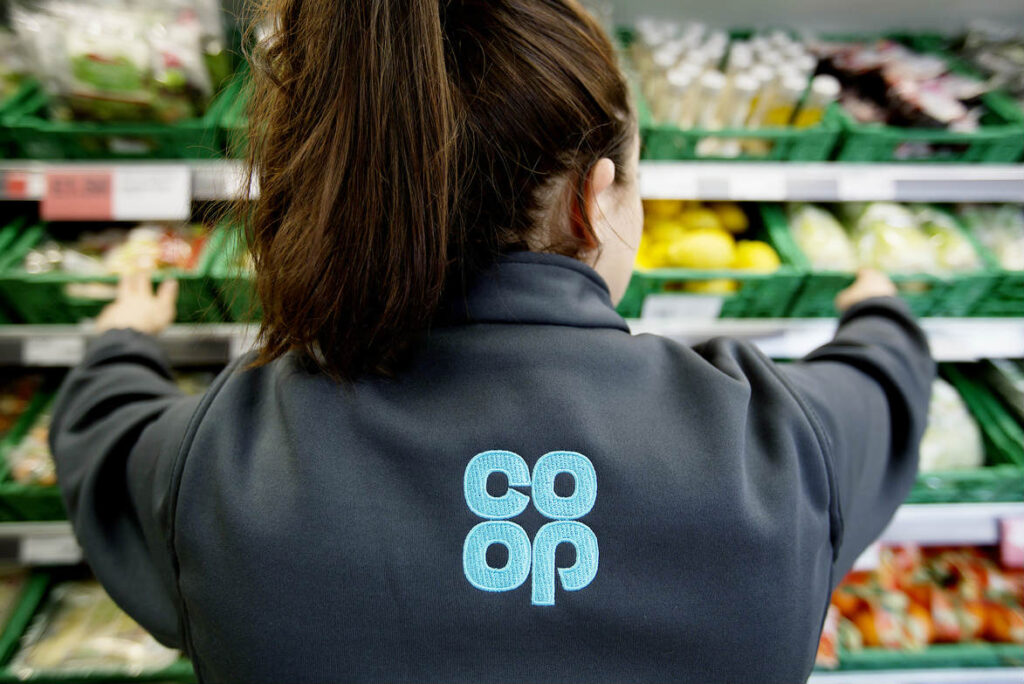// Co-op CEO says more apprenticeships could “drive social mobility and help tackle the persistent inequalities in our society”
// The retailer today will host a round-table with the government and apprenticeship experts to discuss changes to the Apprenticeship Levy
// Co-op says it could offer “hundreds more apprenticeships” if changes can be made to policies
Co-op chief executive Steve Murrells will today open a round-table with government representatives to discuss apprenticeships in the retail and funeral sector.
Murrells will be joined by the National Apprenticeship Service, National Society of Apprentices and Chartered Institute of Personnel and Development in discussing the findings of a new report commissioned by the Co-op group.
The report was prepared by the University of Warwick’s Institute for Employment Research and it examines the national apprenticeships programme with recommendations on change to government policy.
READ MORE: Co-op to address ethnic inequality and publish pay gap data annually
The report found that while there are 10,885 apprentices in the retail sector, this number has dropped by around a quarter since 2014/2015.
With both the food retail and funeral sectors impacted significantly by the pandemic, Co-op has pledged to support “hundreds” of new apprenticeships in both areas.
“Currently, we offer 1,200 apprenticeships across the Co-op. These colleagues are based across our group, from our support centre in Manchester right through to the frontline in UK high streets, in our food stores and funeral homes. I’ve seen how their energy and new ways of thinking helps us to achieve a better way of doing business,” Murrells said.
“Giving people the opportunity to make their mark through an apprenticeship can drive social mobility and help tackle the persistent inequalities in our society.
“That’s why I champion apprenticeships and also why we want to work with the government, following this report to future-proof the apprenticeship policy. We want to help address how the national programme can better accommodate different needs, business to business, apprentice to apprentice.”
It is thought the government’s Apprenticeship Levy will be a central part of the discussions.
Businesses with an annual wage bill that exceeds £3 million are required to confiture to the levy, with the opportunity to utilise these same funds to spend towards training their own apprentices.
As it stands, the Levy covers the required direct training and assessment for each apprenticeship, but not all aspects, such as the mandated 20 per cent off-the-job training.
“Of those we spoke to, there is widespread need for apprenticeships to evolve, so that more opportunities can be delivered,” Warwick’s Institute for Employment Research senior research fellow Peter Dickinson said.
“The levy doesn’t currently cover the training some young people need just to qualify for an apprenticeship, or the additional training that can futureproof a young person’s career, like key digital skills, despite the fact this training is becoming increasingly important. As employers cover these costs, the number of apprentices they can afford reduces,” Dickinson added.
“The levy helps ensure apprenticeships are prioritised by businesses in England, creating opportunities for individuals and communities to enable social mobility in a sustainable way.
“As the pandemic continues and need for flexibility increases, the levy is holding employers back, of all sizes, from being able to increase the number of apprenticeships they can create at this critical time
“We could offer hundreds more apprenticeships, particularly in those parts of the country hardest hit by the pandemic, following some simple changes to the current policy framework,” Dickinson explained.
Click here to sign up to Retail Gazette‘s free daily email newsletter

















